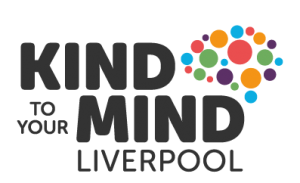Gambling
Gambling-related harms can affect anyone and can affect young people in different ways.
Poor mental health and wellbeing, friendship breakdown, problems in school, college, university and financial difficulties. All of these things can be experienced directly by the person who gambles or indirectly by the family, friends, and colleagues of someone who gambles.
Young People and Gambling
The Gambling Commission’s annual survey of young people aged 11-16 found in 2022 that 31% of young people had participated in some form of gambling in the last 12 months before taking part in the survey, with 23% reporting that they had spent their own money on a gambling activity in the 7 days before taking part in the study.
The most common types of gambling activity that young people spent their own money on were legal or did not feature age-restricted products, namely:
- Playing arcade gaming machines such as penny pusher or claw grab machines.
- Placing a bet for money between friends or family.
- Playing cards with friends or family for money.
- Regulated forms of gambling.
How gambling affects young people
- Most young people who spent their own money gambling in the last 12 months did so because they regarded it as a fun thing to do. Whilst one in five agreed that gambling makes them feel happy, more disagreed that it made them happy, and the same proportion were unsure either way.
- Three in ten young people had seen family members they live with gamble, of which 7 per cent indicated it had resulted in arguments or tension at home.
- A minority of young people who were actively involved in gambling had lost sleep at night because gambling meant that they went to bed late or because they were worrying about their own gambling all of the time, often or sometimes.
- Boys are more likely to be classified as at-risk gamblers than girls.
Gaming and your mental health
Gaming can be a great way to relax, connect with friends, and develop skills like problem-solving and teamwork. However, excessive gaming can lead to addiction, social isolation, and disrupted sleep. Maintaining a balance is important, ensuring gaming doesn’t interfere with studying, exercising, and family time. Encouraging healthy gaming habits and awareness of potential risks can help maintain a positive relationship with gaming and mental well-being.
Some games encourage spending money, especially when you’re deeply invested. They may feature options to buy gaming equipment or accessories, new games, or in-game purchases like new skins. There’s nothing wrong with spending money on our hobbies, as long as we can afford to do that. However, it can be hard to track spending or make thoughtful decisions. Always check for in-game purchases and set spending limits, especially if using someone else’s money.
Social media
Support available
![]() Beacon Counselling Trust (BCT), working in partnership with Gamcare, have been commissioned to spearhead the delivery of free gambling-related harm workshops across Merseyside with a focus on supporting young people.
Beacon Counselling Trust (BCT), working in partnership with Gamcare, have been commissioned to spearhead the delivery of free gambling-related harm workshops across Merseyside with a focus on supporting young people.
 Young Minds has information about how gaming can affect your mental health, how to enjoy a more positive time online and what to do if gaming becomes too much.
Young Minds has information about how gaming can affect your mental health, how to enjoy a more positive time online and what to do if gaming becomes too much.
Liverpool’s Kind To Your Mind support those affected by or at risk of gambling-related harm, including partners, family members and friends:
Source:
Statistics and research release: Young People and Gambling 2022
Gambling Commission report produced by Ipsos on young people and their gambling behaviour, attitudes and awareness in 2022.


